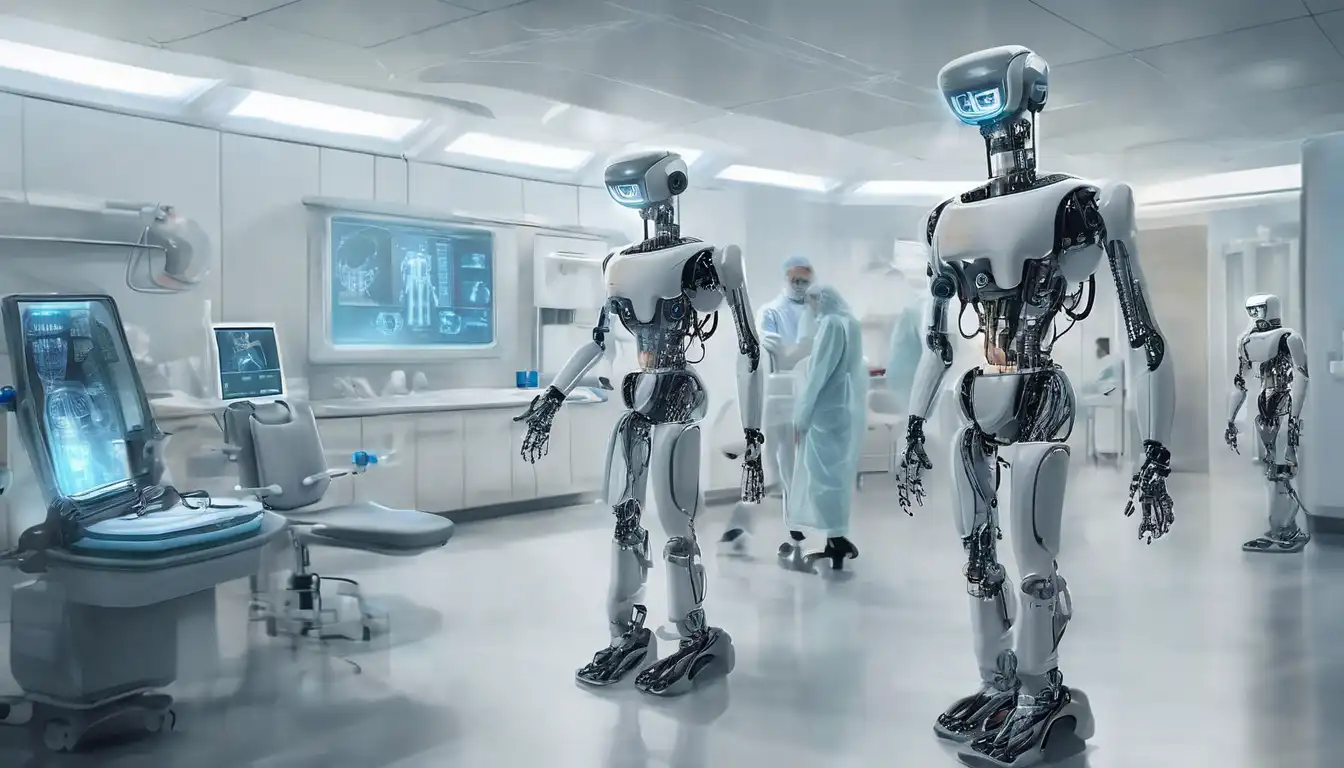The Next Era of Robotics in Healthcare
The integration of robotics into healthcare is transforming patient care, surgical procedures, and rehabilitation processes. This technological advancement is not just a fleeting trend but a significant leap towards enhancing efficiency, precision, and outcomes in medical treatments.
Transforming Surgical Procedures
Robotic surgery, once a futuristic concept, is now a reality. With systems like the Da Vinci Surgical System, surgeons can perform complex procedures with unparalleled precision, reducing recovery times and improving patient outcomes. The future promises even more advanced systems capable of performing surgeries with minimal human intervention.
Enhancing Patient Care
Robots are increasingly being used to assist in patient care, from robotic exoskeletons that help patients regain mobility to telepresence robots that allow doctors to consult with patients remotely. These innovations are making healthcare more accessible and personalized.
Rehabilitation and Recovery
Robotic technology is revolutionizing rehabilitation. Devices like robotic limbs and exoskeletons are providing new hope for patients recovering from strokes or spinal cord injuries, offering them the chance to regain independence and improve their quality of life.
The Role of AI in Robotics
Artificial Intelligence (AI) is the backbone of modern robotics in healthcare. AI algorithms enable robots to learn from data, improve over time, and make informed decisions, paving the way for autonomous robotic systems that can assist in diagnostics, treatment planning, and even patient monitoring.
Challenges and Ethical Considerations
Despite the benefits, the integration of robotics into healthcare comes with challenges. Issues such as high costs, the need for specialized training, and ethical considerations around patient privacy and autonomy must be addressed to fully realize the potential of this technology.
Looking Ahead
The future of robotics in healthcare is bright, with ongoing research and development promising even more innovative solutions. As technology advances, we can expect robots to play an increasingly central role in healthcare, from routine check-ups to complex surgical procedures.
Embracing these changes requires collaboration between technologists, healthcare professionals, and policymakers to ensure that the benefits of robotics are accessible to all, improving healthcare outcomes worldwide.
